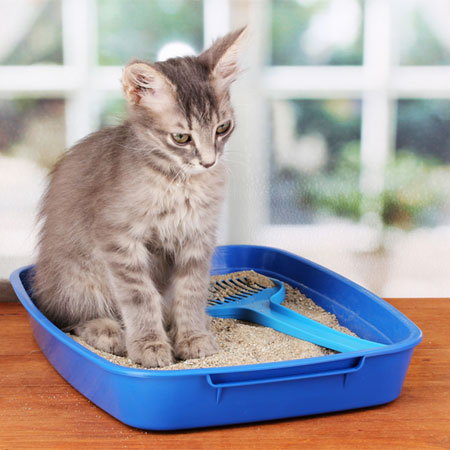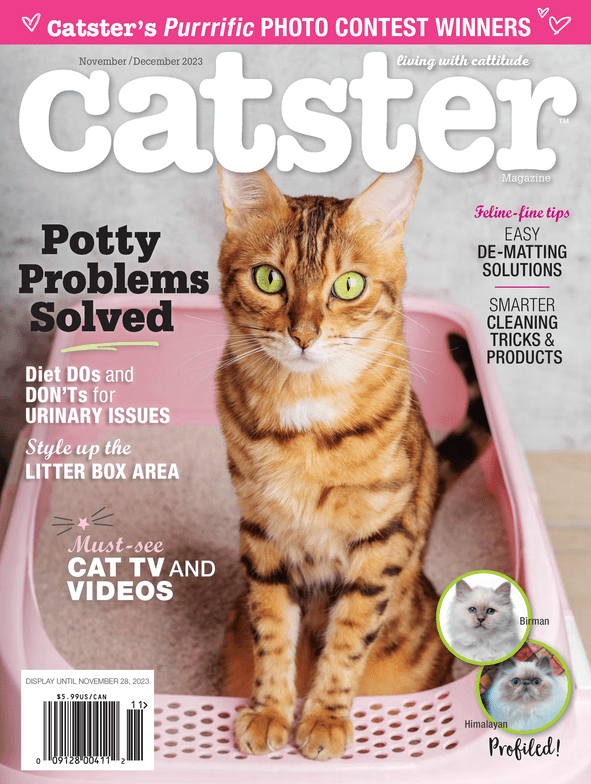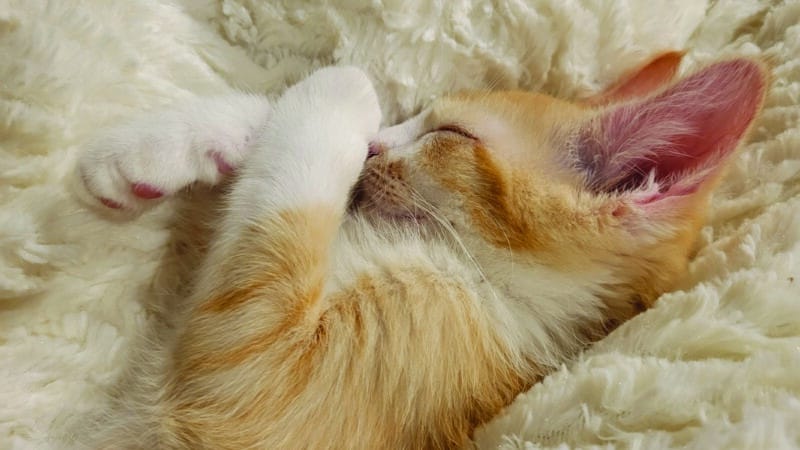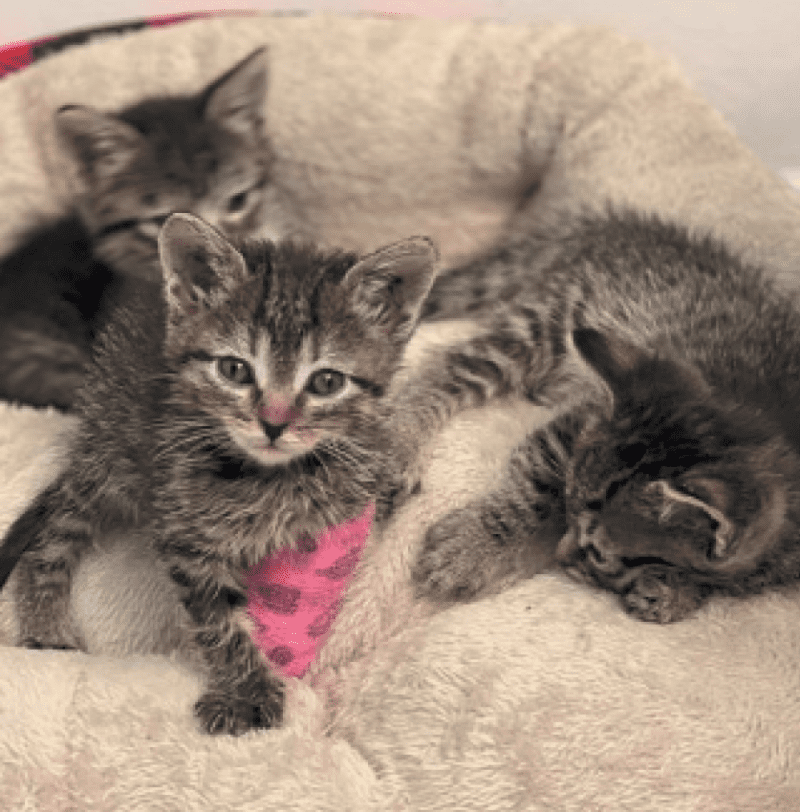The more zoonotic diseases I research and write about, the more routinely I wash my hands after petting my cat. It may seem like a case of being overzealous about cleanliness, but roundworms in cats pose an insidious threat, and one that’s worth taking seriously. Both where you and your cat are concerned, however, the roundworm menace is relatively simple to prevent, and much of that involves developing a practical hygiene routine.
What are roundworms in cats?
Roundworms in cats are the most common internal parasites that afflict our feline friends. By far the most prevalent roundworm in cats is Toxocara cati. Found all over the world, the feline roundworm’s eggs have an equally universal method of distribution: in an infected cat’s feces. Roundworm eggs, far too small to see with the naked eye, take anywhere from one to three weeks to become viable.
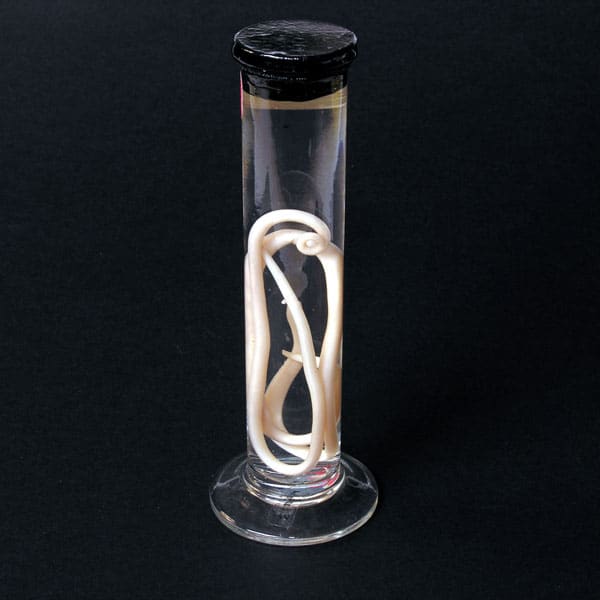 Roundworm by Shutterstock. " />
Roundworm by Shutterstock. " />
A cat may step where one has been left behind, and then, in the course of normal grooming, ingest the roundworm’s eggs. Hatching in the gastrointestinal tract, larval feline roundworms make their way by a variety of routes to a cat’s windpipe. Once in the trachea, the cat hacks and coughs, propelling the roundworm larvae back toward the throat. Cats swallow them again, at which point roundworms return to the intestines where they reach a full size of roughly three to six inches.
Unlike flatworms, such as tapeworms, which attach themselves via scolex, or mouth-sucker, to their host, roundworms in cats spend their adult lives swimming around in the intestine. Here, they are content to steal nutrients and produce more eggs. Roundworm eggs exit the cat’s body in feces, where the cycle can begin afresh.
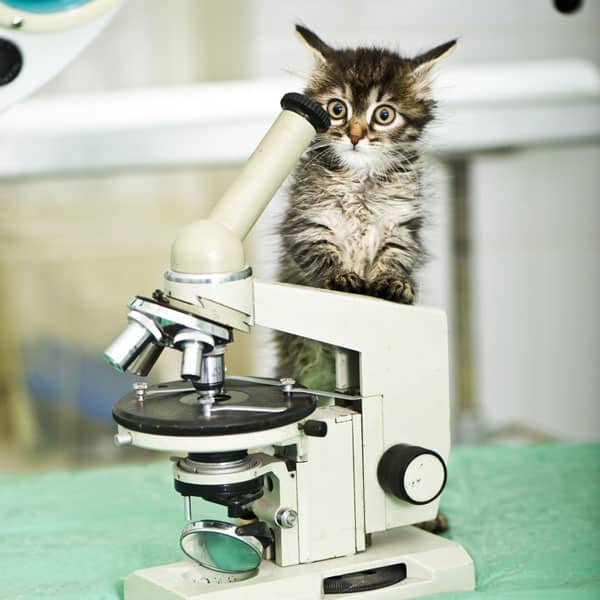 Adorable kitten in veterinary clinic</a> by Shutterstock. " />
Adorable kitten in veterinary clinic</a> by Shutterstock. " />
Roundworms in kittens
These intestinal parasites can affect cats of any age, but roundworms in kittens can be particularly brutal. It sounds horrifying, but if a pregnant cat is infected, her kittens can be born with the beginnings of a roundworm infestation. How does that happen? Roundworms must be ingested, so mothers can pass eggs to kittens in milk while nursing, or through the placenta itself in utero. Veterinarians recommend testing kittens for roundworms starting at around three weeks of age.
Symptoms of roundworms in cats
Roundworms in adult cats can be very difficult to diagnose at home; rarely will you see roundworms in a cat’s feces unless the cat is undergoing a course of deworming treatment. A severe infestation of roundworms in cats may attract some attention. Cats with a roundworm infestation may be anemic and lack energy from extended periods of having vital nutrients stolen by adult roundworms.
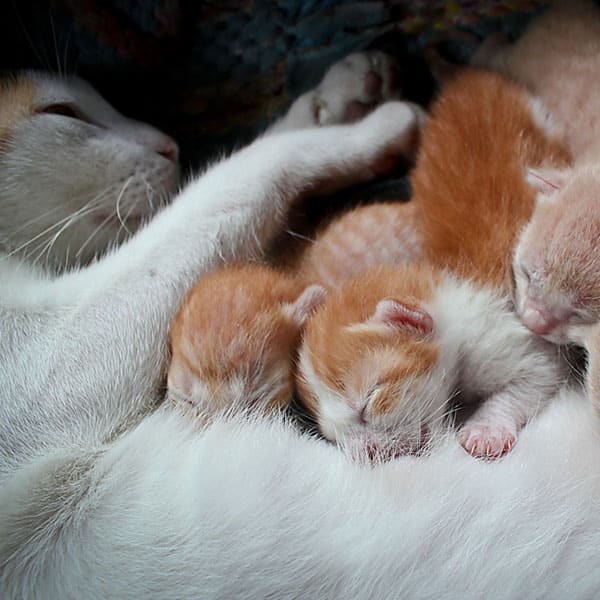 Cat Nursing her Kittens</a> by Shutterstock. " />
Cat Nursing her Kittens</a> by Shutterstock. " />
Otherwise inexplicable coughing may be a sign of a roundworm infestation in progress, as larval roundworms attempt to complete their journey. Chronic diarrhea, constipation, or other digestive issues may manifest given enough time and enough roundworms.
In kittens, symptoms of roundworms are somewhat easier to discern. Along with vomiting and diarrhea, a kitten with roundworms tends to take on a rotund, pot-bellied look. Leeching vital nutrients and fluids, roundworms can stunt a kitten’s normal growth. Chronic diarrhea caused by roundworms in kittens can also lead to dehydration, inability to put on weight, and, eventually, death.
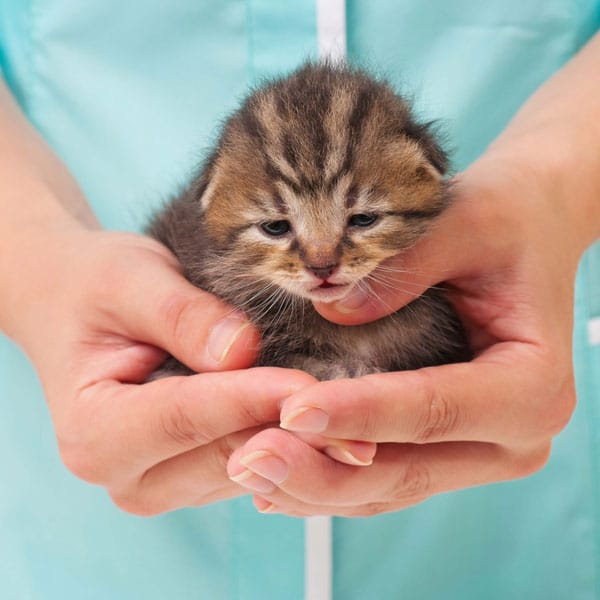 Unfortunate newborn kitten in hands of the veterinarian close-up</a> by Shutterstock. " />
Unfortunate newborn kitten in hands of the veterinarian close-up</a> by Shutterstock. " />
Treating and preventing roundworms in cats
Once roundworms make a home in your cat’s gastrointestinal tract, the process of deworming can take multiple visits to your veterinarian to resolve. Proper diagnosis alone may take a couple of veterinary appointments and fecal tests. Although roundworm eggs exit a cat in feces, egg distribution can be erratic, and not every stool sample will contain roundworm eggs. That said, treatment is fairly straightforward, and many effective options are readily available for properly diagnosed cats and kittens.
Prevention is the best approach to fending off the intestinal menace of roundworms in cats. Start early. Within a few weeks of whelping, both mother and kittens should undergo deworming. It’s important to note that any treatment is only effective on adult roundworms; larvae and eggs are resistant to current treatments.
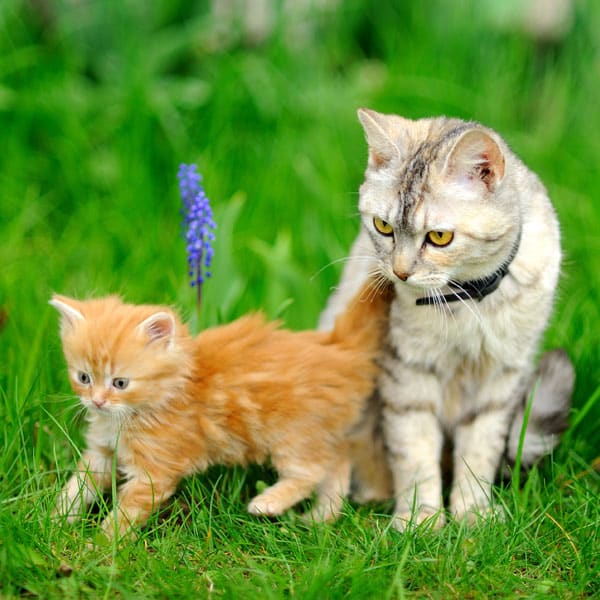 little tabby kitten with mother cat on green grass</a> by Shutterstock." />
little tabby kitten with mother cat on green grass</a> by Shutterstock." />
Resolving a case of roundworm in cats is not a safeguard against future infection, either. Fortunately, there are many preventative medications available that can stop roundworms before they become problematic.
Practice good hygiene with your cats!
No matter how little time your cat spends outdoors — even if it’s just for a little while on Caturday — the potential for a cat to pick up and ingest a stray roundworm egg is there. Inside-cat only? Irrelevant; you could just as easily track in a roundworm egg from outside and expose your cat.
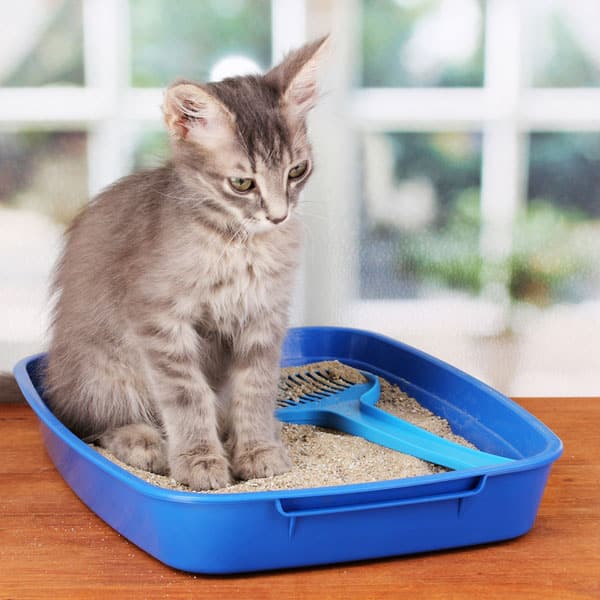 Small gray kitten in blue plastic litter cat on wooden table on window background</a>" />
Small gray kitten in blue plastic litter cat on wooden table on window background</a>" />
Since roundworms are a zoonotic threat, you could just as easily ingest a roundworm egg after petting a cat or being licked by one. Therefore, proper hygiene is just as key, for yourself and your cat, as preventative medicine. What does that entail? For one, washing your hands after playing with a cat, especially outdoors. It also means keeping your cat’s litter box as tidy as possible.
You may even give your cat a regular bath to ensure all external particulates, roundworm eggs among them, are removed from the equation. It is estimated that between 25 to 75 percent of all cats come into contact with roundworms during their lives.
Have you and your cats ever had to deal with a roundworm crisis? Share your stories, preferred preventative medicines, and favorite hygiene practices in the comments!
Learn more about your cat with Catster:

